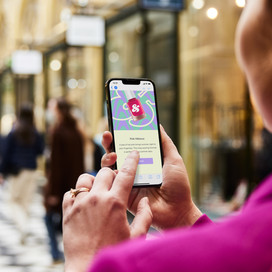Table of contents
Any expert email marketer will tell you data is king. Analysing all the numbers behind your marketing efforts is crucial to fine-tuning your strategy. And arguably one of the most important data points to pay attention to is your email open rate.
What is an open rate?
Your open rate is essentially the percentage of people who open your email. A high average open rate means you’re doing a number of things right, like timing your sends well and writing enticing subject lines. A lower rate means you have a bit of work to do.
What’s a good average email open rate?
Probably a lot lower than you think. In school, a 50 percent marking means you flunked. But in the world of open rates, 50 percent is passing with soaring colours—it lands you in the A++ range. (For you math geeks, a 50 percent open rate is around four standard deviations above the average). Just think about how you go through your email every day — outside of the personal ones, you probably move the lion’s share to an archive or read-later folder. You only open up a marketing email that really grabs you.
So what should you shoot for? Average email open rates vary widely across industries — and with the type of message you’re sending (a huge sale may bring more people to click, for example). But generally, you’re riding high if you hit 20 percent.
How to improve your average email open rates
If your average email open rate isn’t very high, don’t be discouraged; there are simple, proven strategies for boosting open rates. A key to making your email stand out among an inbox full of marketing messages is to convey a sense of urgency. Use words like “time-sensitive,” “act” and “fast” in the subject line. Also, personalisation is more important than you might imagine.
People will dismiss a generic subject line without a thought, but a study found that when the recipient’s name was in the subject line, the open rate was 18.3 percent, compared with 15.7 percent without a name. But don’t get too wordy in the subject line, as a report by MailerMailer found the ideal subject line length is between 28-39 characters.
While you are being careful about how many words you use, you should also choose those words wisely. That is, avoid sounding spammy. Words like “no fees,” “get paid,” and “subscribe now” can be red flags that get your email sent directly to the spam folder.
If you’re not there, there’s a lot you can do to improve your average open rates. A crystal-clear, actionable subject line goes a long way, as does targeting your sends to the people who will be the most interested in your message (for example, your loyal customers versus ones you want to re-engage). We’ll be going into this topic further in a few weeks, so stay tuned for more tips and tricks.
![]()











